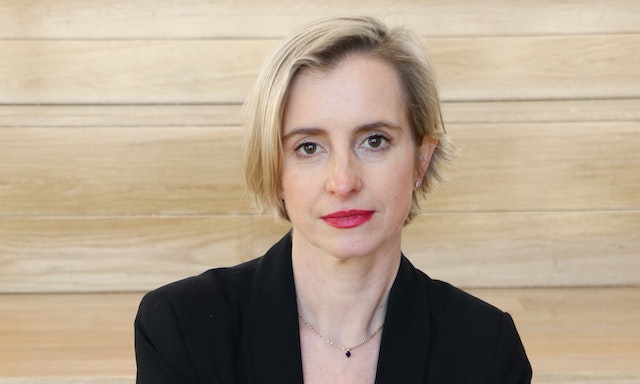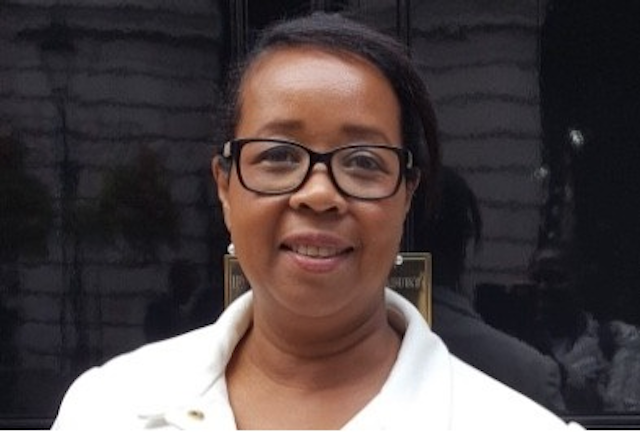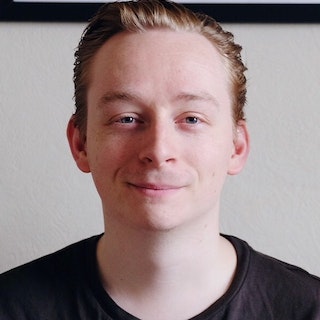As crisis worsens, are ad agency mental health policies up to the task?
With stats showing an increase in advertising workers look for mental wellbeing support, we ask agency leaders how they’re planning to improve things.

How are agencies adapting mental health policies to the cost of living crisis? / The Drum
A recent Nabs survey found the mental health crisis facing advertising professionals was likely getting worse, not better, with demand for its services rising.
Many ad agencies have put in place a phalanx of mental wellbeing policies, particularly since the pandemic, while some have adapted those frameworks and initiatives to cope with the cost of living crisis playing out in most developed economies.
We asked 16 agencies how they have improved their policies.
Advertisement
How do you solve a problem like... bolstering agency mental health policies?

Katie Lee, chief operating officer, Wavemaker UK
Right now, the cost of living crisis is understandably taking a toll on our people’s mental health. Recognizing that the impact won’t be the same for everyone, we have held confidential focus groups at all levels of our business to identify the policies we can launch or flex to really make a difference. From payday pizza to vouchers for free lunch in our upstairs canteen, and from subsidized beauty treatments and free yoga in the office to free one-to-ones with a financial advisor, these little lifts have built on the support already offered by our mental health first aiders, our employee assistance program and our broader benefits package to widen the positive impact on our people. We believe this is right for now, but we’ll keep listening and evolve the support as it’s needed.
But support isn’t just about policy. The biggest support that we can give our people is how we show up each day. At Wavemaker, we talk about ‘lean-in leadership’ – that means no command and control, but rolling our sleeves up and working together. We’re proud to foster a culture that considers ‘we’ before ‘me’ and sees staff look out for one another and our clients in everything they do.
Louis Balogun, operations director, Iris Worldwide
Our ultimate goal is to create an environment where people feel able to talk openly, honestly and unashamedly about their mental health. Preventative care is the primary objective. We are focused on opening doors to professional support, be that Nabs or counseling via our healthcare partnership, time off or practical changes to someone’s work. We are proud of our empathetic managers who recognize the signs of burnout and intervene before the fact, not after. Our mental health first aiders and the in-house management training program ensure we’re constantly evolving our innovative initiatives and providing best-in-class first line support to our staff.
Advertisement
Jo Blake, investment director, MI Media
As a mental health first aider, it’s not always me who people would turn to – it could be their individual manager or director in times of need. Someone who they know very well. We will be rolling out mental health mentoring for those leaders in order to help teams. It’s very simply ensuring that mental health conversations are happening and that all parties are comfortable with that, not just meeting about work, clients and workload. Mental health mentoring is also about identifying issues and proactively setting time aside for individuals who may need that support.
Of course, our company and people have access to support from Nabs and professional help through our EAP scheme and private health partner. We have also introduced the ’worry not pot’ – a scheme where our people can get a loan from us to help with bills, to try and help reduce any financial stress. The introduction of core hours also means that people do not need to travel at peak times, giving them flexibility with things such as childcare. We also have a calendar of social events not based around drinking alcohol, so that our people have the chance to mix with everyone from the company and never feel isolated.
Patti McConnell, co-founder and managing partner, Something Different
Our agency culture has always prioritized our staff. We’ve evolved from crisis management of the past few years to supporting staff wishes beyond ‘needs’, as able. We try to offset the cost of living and cover some expenses staff may not ask for outright. We offer more time for recovery when someone is ill, extended time to visit loved ones, celebrations and support for outside interests.
These efforts can aid in supporting mental health and reinforcing to our team how valuable each person is.
Sally Pritchett, chief executive officer, Something Big
There’s no doubt that our mental health is being tested. One the keys to easing the built-up pressure is creating a safe and open environment for people to speak out. That means proactively destigmatizing mental health. For us, that started with me demonstrating vulnerability and an acceptance of fluctuations in my mental health, supported by sharing a compilation of personal stories from the team on their own experiences and providing time to connect outside of project work. Creating a healthy workplace isn’t an overnight success, it’s an ongoing commitment.
Jamie Ray, founder, Buttermilk
The average age of our workforce is 25 and, naturally, they can feel the brunt of macroeconomic pressures. We have a duty to put in place a framework that supports the mental wellbeing of our employees. This doesn’t just involve a social budget to go down the pub. The solution needs to more dynamic – what improves someone’s mental wellbeing is entirely subjective. With this in mind, we partnered with Juno – a wellbeing platform built on choice. Each month, our employees can use Juno points against pretty much anything that contributes to their wellbeing. This can range from therapy to simply buying flowers for their flat. It gives our staff both access and choice to things that are actually capable of making a difference.

Gina Ramson Williams, chief people officer, OMD EMEA
It’s about responding quickly, listening to feedback, providing a range of support and identifying the needs of each of our people – whether that’s partners including Headspace and Selfspace providing therapy and resources for everyday mental wellbeing, our dedicated office room for time out and reflection, a listening ear from our 15 mental health first aiders on site or providing access to trained professionals who deliver counseling – both preventative and crisis – on a range of challenges, eg stress and anxiety, financial issues, relationships and bereavement.
Creating a culture where people can share their challenges is paramount, alongside our people having access to the resources they need, at any point in their day or career, as and when they need it.
Hayley Tiptaft, group people director, Talon
Our Smarter Working policy encourages balance through physical time spent in the office and flexibility over the way in which hours are worked. Our main office locations have trained mental health first aiders who are on hand to support when employees need it, while globally we ensure that all line managers undergo ‘mental health for line manager’ training to ensure that they have the tools to have conversations with their team members. We offer private health care that covers mental health support, an employee assistance program (EAP), a monthly ’feel-good’ allowance to spend on activities that make people feel happier, monthly massages and we run regular wellbeing workshops. The main thing at Talon is sparking the conversation and ensuring that we are providing education in this space.
Claire Birch, director of people and talent, ScienceMagic
In response to the growing need to proactively support employees’ mental health, we are about to begin a partnership with a progressive science-based mental wellbeing platform from Happence. The platform, which is available 24/7, will be rolled out to all 100 ScienceMagic employees in London and New York. The content is a varied mix covering a wealth of topics and the platform encourages active engagement, giving individuals the chance to track their progress and see improvements. We hope this holistic and proactive tool will support the mental wellbeing of our whole community.
Advertisement
Izabela Blach, chief happiness officer, Good Apple
We prioritize the mental wellbeing of each employee by providing financial stability through compensation packages well above industry average and focusing on what really matters – the people. From giving each employee the opportunity to plan their personal and professional goals with the help of an executive coach, to the flexibility of working from home in the location of their choosing and not having to worry about rigid return to office plans, we allows people to direct their careers while successfully growing the organization. While we are a virtual-first company, we know that magic happens when we get together. Therefore, we are trialing a co-working tour of Latin America where we will spend one week per quarter in a different city working side-by-side, volunteering and exploring new cultures.
Emma Harris, chief executive officer, Glow London
In times as difficult as these, buzzwords and box-ticking exercises just aren’t enough! Leaders need to redefine what it means to be a genuine ally of mental health and that means leading by example by sharing their own vulnerability, ensuring there are practical ways for people to get help and making sure there is the space, the tools and the appetite for genuine dialogue about mental health. I know some agencies are also offering hardship funds and increased flexibility in terms of working hours, which demonstrates they have a genuine culture of care. The only asset any agency has of any value is its people, so it’s time to ensure mental wellbeing is a high priority within any agency culture.
Stacey Martin, chief people officer, PMG
We openly recognize the external pressures weighing on our employees, which is why we bring everyone together month to month to transparently share how we’re navigating the current economic and business environment. We regularly evaluate total compensation in line with market trends, in addition to rewarding promotions and bonuses where merited. We conduct quarterly employee feedback surveys to identify how we can continuously improve and support employees, so they can focus on delivering for the business. This has led to new benefits like four weeks of PTO, increased counseling sessions, and lifestyle spending accounts that can be used for anything from childcare to gym memberships. We also empower our employee-led mental wellness ERG to provide employees with a safe space to talk about mental wellness and to influence how we support our people’s mental wellbeing.
Giorgio Cassella, managing director, Evoluted
Using our people-first ethos as a north star, at Evoluted we are continuously re-evaluating our wellbeing initiatives. It’s one of our key recurring focuses at a senior level and we encourage staff to hold us accountable for upholding that culture.
We already provided mental health coaching via Sanctus, increased annual leave and monthly pastoral one-to-one conversations, but over the past six months we have added a £2,000 per employee cost of living payment, closer monitoring of time-tracking by managers to spot early warning signs of overworking and burnout, and appointed a new happiness and wellbeing officer.
Jen Daly, senior vice-president of people, TMA (The Marketing Arm)
We reorganized our ERGs to expand resources while reducing their obligations and we’re building virtual communities around identities, life stages and passion points. We created a variety of inclusive wellness programs. We hold fitness challenges for all levels – prizes have included Peloton machines – and weekly meditation sessions. We’ve provided yoga classes and wellness app subscriptions. We’ve hosted influential speakers on topics including emotional resilience, co-regulating with kids, and cultivating joy.
We acknowledge public tragedies and the strain these can put on mental health and performance. When possible, we respond with donations and encourage independent actions that collectively make a difference. We promote the mental health resources available to employees. We convey our expectation that employees express care and support each other when called for.
All of these are standard practices we developed intentionally from 2020 onward.
Want to join in the conversation? Get in touch: sam.bradley@thedrum.com
